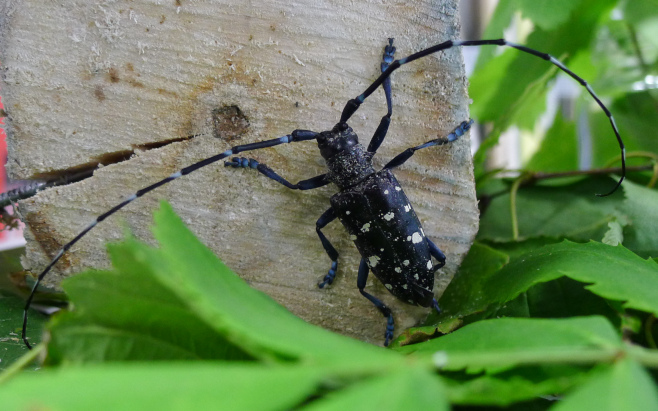New plant health legislation to enter into force on 14 December 2019

The legislation on plant health will be renewed when the EU Plant Health Regulation (2016/2031) becomes applicable in all EU Member States as of 14 December 2019. Compared to the current legislation, the most significant changes concern the use of plant passports and self-monitoring, the import of plants from outside the EU, and the classification of plant pests. The changes will affect both businesses and consumers.
Plant health is important for the European Union's plant production, forests, nature and biodiversity. The new regulation emphasises the prevention and earliest possible detection of pests. This is the most effective way to prevent the damage caused by pests and to limit the resulting financial losses. The Plant Health Regulation in force as such has created a harmonised legislative framework that aims to mitigate phytosanitary risks as effectively as possible. With the new legislation, the requirements for the import of plants will be made more stringent. For example, certain plants are subject to an import ban until their phytosanitary risks have been assessed. The aim is to protect the EU territory against pests that can spread along with international trade. Climate change can also cause the spread of new pests to the EU.
New legislation brings changes to classification of plant pests and improved traceability
The new legislation classifies plant pests as follows: Union quarantine pests, which are significant pests throughout the territory of the Union (e.g. pine pitch canker (Gibberella circinata)), protected zone quarantine pests, which refer to pests that are significant in certain areas (e.g. fire blight (Erwinia amylovora) and priority pests, which refer to the most harmful pests that are not known to occur in the territory of the Union or that have very minor, irregular occurrences in some parts of the Union (e.g. pine wilt nematode (PWN, Bursaphelenchus xylophilus)).
In addition, there are “degrading” pests that weaken the quality and quantity of the crop and thereby lead to financial losses (e.g. apple proliferation disease (Candidatus Phytoplasma mali)).
The aim is to ensure that the origin of pests can be traced by expanding the use of plant passports to cover all plant species. As concerns imports, a phytosanitary certificate will be required for all live/fresh plants and parts of plants, including fruit and vegetables.
Changes to passenger import rules
With the new Plant Health Regulation, passengers must be informed about plant import bans at ports and airports. This obligation also applies to international traders. Posters concerning passenger imports remind passengers about the spread of pests with plants using pictures and words.
The Plant Health Regulation applies to all citizens. Anyone who finds a quarantine pest must notify the authorities.
Supplementary Regulations and Control Regulation
In addition to the new Plant Health Regulation, a number of supplementary regulations have been issued specifying, for example, the use of plant passports and high-risk plants, and the information to be provided to passengers. In addition to the EU Plant Health Regulation, the new Control Regulation 2017/625 will primarily apply from 14 December 2019. The Control Regulation lays down uniform rules for the control of the entire food chain, including plant health.
National Plant Health Act
The new National Plant Health Act (1110/2019) enters into force on 14 December 2019 and lays down provisions supplementing the EU Regulation. The Act lays down provisions on the competent authorities and their duties and penalties. The Plant Health Act and the new Decree of the Ministry of Agriculture and Forestry issued under it also provide for the marketing, use and import of macro-organisms used in biological control and pollination.
Legislation
- Plant Health Act 1110/2019 (in Finnish)
- EU Plant Health Regulation (2016/2031)
- EU Control Regulation (2017/625)
- Information on the website of the Finnish Food Authority (in Finnish)
Inquiries at the Ministry of Agriculture and Forestry
- Pirjo Tomperi, Senior Adviser, Legislative Affairs, tel. +358 295 162 234, email: [email protected]
- Marja Savonmäki, Head of Unit, Plant Health, tel. +358 295 162 280, email: [email protected]
- Taina Aaltonen, Deputy Director-General, tel. +358 295 162 439, email: [email protected] (primarily available as of 16 December)